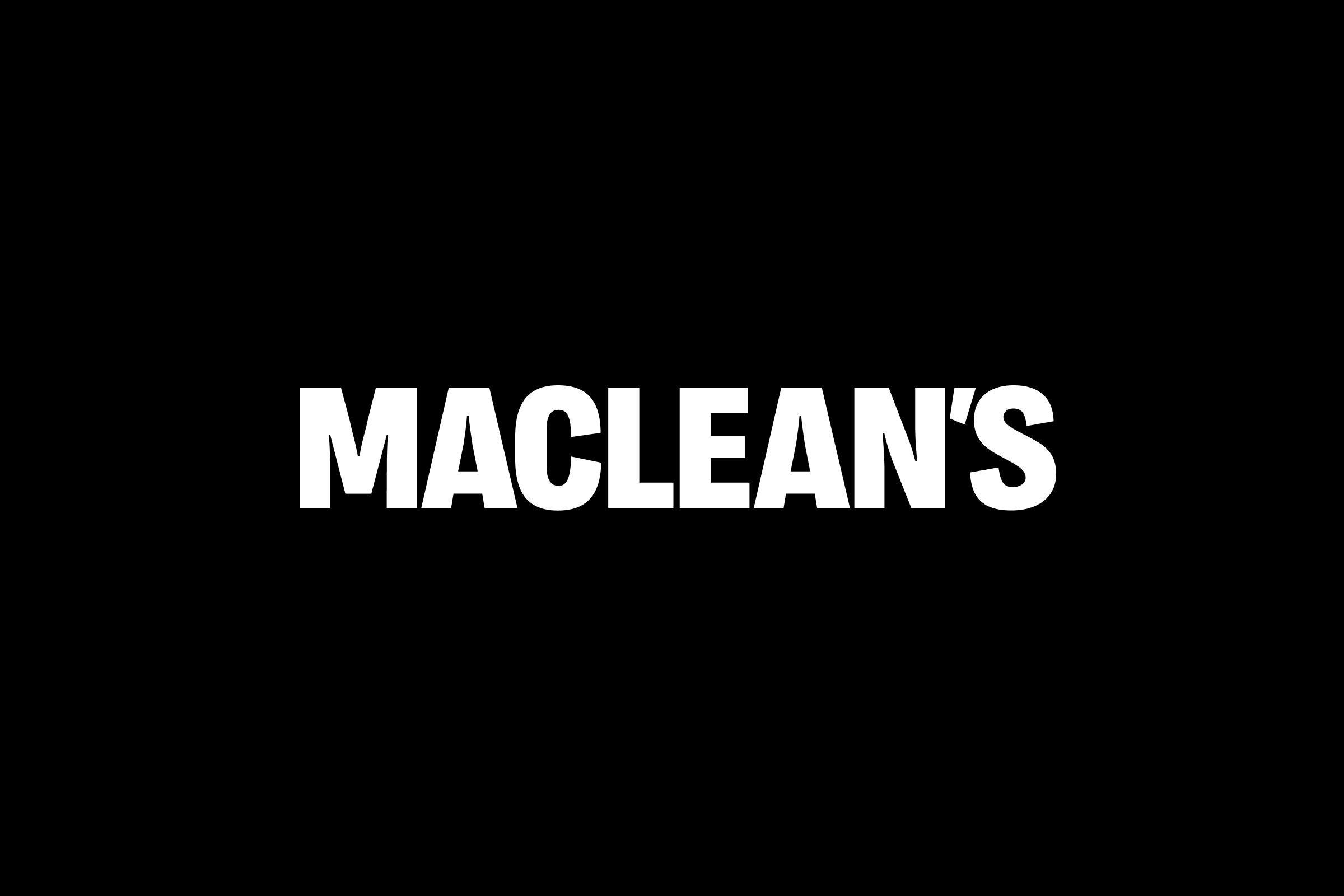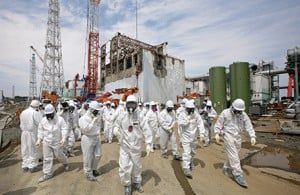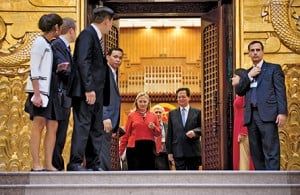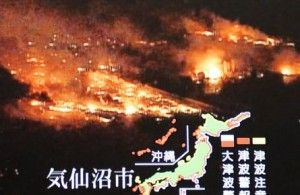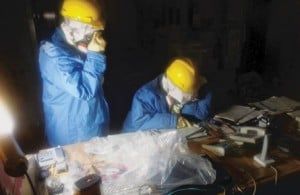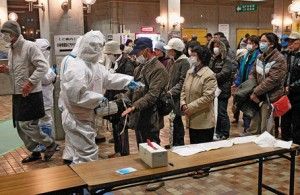nuclear power
Finding core support for nuclear power
Nuclear energy has had a difficult time in recent years, but the industry is cautiously optimistic that the world is realizing its benefits
Lights out for nuclear power?
Japan’s Fukushima disaster and the rise of shale gas have the developed world running from nuclear power
Why Vietnam is becoming America’s new BFF
The former enemies are big trading partners. Could military co-operation be next?
Toru Hashimoto, the brash, young mayor of Osaka, is Japan’s most popular politician
Osaka’s mayor is young, media savvy, opposes nuclear power, and is firing up voters
Japan, one year later
A lot has changed but the country is still scarred by the earthquake and tsunami
Heroes: the Fukushima 50
When 700 workers were evacuated from a Japanese nuclear power plant, these few stayed behind to battle a meltdown
Germany to wean itself off nuclear energy
Plans to close all reactors by 2022
Quebec and Alberta: best buds?
Contrary to popular belief, most Quebecers don’t hate Albertans
Helplessness and humility in the nuclear age
There are natural disasters. And there are man-made disasters. Never have the two been conjoined as in Japan right now.
The Bush Hangover
It is hard to underestimate the imprint George W. Bush’s “axis of evil” speech left on U.S. foreign policy. The story has been unfolding ever since, with the invasion of Iraq, the disengagement from bilateral talks with North Korea that had been started under the Clinton Administration, and the continuing alienation from an emerging regional, and possibly nuclear, power in Iran. The Iraq war quickly degenerated into an anti-insurgency operation that remains far from a conclusive; North Korea has once again provoked the ire of the world with its nuclear tests; and, as for Iran, with an election currently underway, it may not be the ideal time for the U.S. to radically alter its approach, but its nuclear enrichment program remains an ongoing source of worry. In the meantime, events in Afghanistan and neighbouring Pakistan have become grounds for serious concern. I know it appears all too easy to blame Bush and Cheney for all this, but eight years of misguided policies cannot be reversed overnight or even in the first year of a new presidency, however well-intentioned or promising it may be.
Is Clean Coal Actually Clean? The Coen Brothers Weigh In
The Oscar-winning Coen Brothers recently produced this ad, ridiculing the term “clean coal.” It’s amusing, but doesn’t give much substantive critique. In reality, the coal industry has done much to clean up its nitrogen and sulphur emissions, which our big acid rain problem in the 1970s, 80s and early 90s. Emissions of these pollutants are down 70 per cent, which is what the coal industry means when it says the fuel is “70 per cent cleaner.” The industry hasn’t done much to lessen its carbon emissions to date, mostly because the technology isn’t there yet. Perhaps in the future, the excess CO2 will be separated into carbon and oxygen, or piped underground (both options currently being researched), but the technology is going to need decades of research and massive investment. Plans to build the US’s first CO2 storage coal-fired plant were abandoned last year, as the $1.8 billion FutureGen project in eastern Illinois ran into serious cost overruns. Coal is considered so bad for global warming that even nuclear power, once derided by the greenies, is now considered cleaner than the fossil fuel. Nuclear energy has its problems, with storage of waste and security issues, according to Steven Chu, the Nobel-prize winning new energy secretary. Yet “the safety is better and will continue to get better, and nuclear power is far better for climate than coal.”
The Nuclear Age
The weekly announcements of yet another new nuclear plant in the works suggest an industry gaining credibility after years of environmental backlash and NIMBYism. The province of Ontario says it will build two nuclear reactors at the Darlington generating station east of Toronto. Saskatchewan premier Brad Wall says his province will be “the Saudi Arabia of uranium for the world”, hopefully without that country’s security concerns. In Manitoba, the town of Pinawa, Man., 180 km northeast of Winnipeg, is in discussions with Atomic Energy of Canada to put a nuclear lab in the town. The site used to have a functioning plant in the 1960s, but it was closed in 1998.
